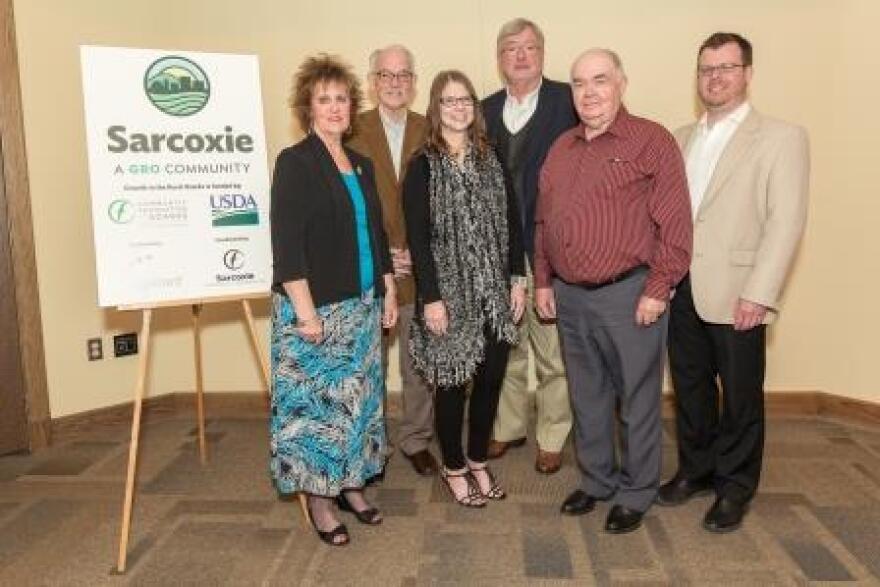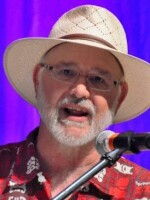In May of 2016, The Community Foundation of the Ozarks announced Marshfield, Salem, and Sarcoxie, as the first 3 Missouri communities to receive CFO’s first ever Economic Development Grants, through the Growth in the Rural Ozarks, grand program. GRO, as it is known, is designed to promote job creation, entrepreneurship, and economic and workforce development in rural communities. Growth in the Rural Ozarks is Co-Funded by CFO and USDA Rural Development, and over the 3 year course of the program, each city will receive around $100,000.
Here to talk about Growth in the Rural Ozarks, for Making a Difference; Stories of Hope and Help: CFO President &CEO Brian Fogle, and Hrishue Mahalaha, Managing Partner of Cleveland based, Innovation Economy Partners. Mahalaha was hired to facilitate GRO, in Marshfield, Salem and Sarcoxie, and he did so in part, by making multiple visits to each city, and connecting with their past, their people, and their potential….
Hrishue Mahalaha: “Good morning Brian. It’s been an incredible honor, and fun, working in the Ozarks, this last year. As an Indian male walking into rural Ozark communities and I’ve made this joke often: I didn’t know the Missouri State motto until I got here, and realizing Missourians are called the Show-Me-People, and here comes this fellow from Cleveland to tell these small communities how to build their economics, obviously there will be a few obstacles along the way.”

With a chuckle, Brian Fogle praises Mahalaha’s methodology: “Hrishue, I just compliment you on your willingness to totally embrace and engage these communities, and that you’re spending the night with people, instead of driving back to Springfield. You’re trying to get the whole feeling, and you’re going to coffee with “the Good Old Boys” to totally engulf yourself, and I think that’s how you learn about a community.”
Brian Fogle goes on to tell Hrishue Mahalaha that 16-CFO affiliate communities applied for GRO grants, and Marshfield, Salem and Sarcoxie were chosen based on their readiness, and, in part, by their size: “In rural definitions, we were looking for a very small city, a more medium sized one, and a larger one, and we were also looking for three different geography’s.”
Hrishue Mahalaha seems impressed with how innovative GRO is: “Most communities do an economic plan which is just a 5-7 month strategic planning exercise, and then they’re done. The communities are then left to themselves to try to implement and make sense of things. GRO is a three year program, and so not only are we putting the community on the bicycle, we’re guiding them and gently letting them go on their own, so the program can be sustainable.”

Brian Fogle: “You know in many of our small communities in the Ozarks, we harken back to 1950’s and 60’s, to the Golden Years. Back in those days, about 20% of the workforce was (Garment and Shoe) manufacturing. Those days are gone. What do you see as the 2.0 for rural America, and the rural Ozarks, and what are those economic opportunities that we’ve not yet found, to replace what we once had?”
Hrishue Mahalaha: “In the British American War, and I love using this analogy, the Americans were nimble, they could move fast, they were smaller. They could do more things; they could fail, learn and test fast. That is the rural strategy moving forward. Small, bite-sized investments we can test and try out. Whether it’s what type of businesses can be sustained in the community, or how to get students more engaged in the community, or place making through improvement of the parks, infrastructure, or buildings, you can try out those projects in small areas. There’s certain nimbleness, and the opportunity is to help these leaders find the path forward.”
“The number one export from the Ozark communities is our children,” says Brian Fogle, “Ultimately, the future is going to be the success of our children either coming back or staying, tell me how you engage younger people in your work.”
“Sure”, says Mahalaha, “Across the three communities, we placed about 20-25 interns. We’ve specifically reached out to the schools, and got those students out in the community, into the businesses, the City Halls. Our hope is that through that process, they get exposed to the parts of the local economy and when they get older, the homing beacon kicks in and they realize the opportunities back home. The more we pull those students and their mindsets and ideas into our communities, they get empowered and enthusiastic, and that leads to positive outcomes.”
Brian Fogle: “Tell me Hrishue, what role does hope, play in a community?”

Mahalaha responds: “I think what you need, is a community that’s engaged. A citizenry that’s committed to the community; Weather it’s the businesses, they have a role, or the citizens, the students, etc.. Community engagement is a really big piece of what we are striving for in the communities, and I’ll use Sarcoxie as an example: We started by looking at the main arteries in and out of town. As you drive in these areas you see incredible blight, houses falling apart, and under maintained properties. So we specifically started cleaning a handful of properties we knew, just bothered people. Once we started doing that, what communities start to realize is, someone is doing something. It’s the Broken Windows theory of New York where one window is broken, and then when nothing is done, lots of windows get broken, and people start to think no-one cares about the community. But once you start cleaning up a community that leads to the hope factor. When we do a volunteering event, when we do a clean-up event, when we Want businesses to participate in the hiring of local students, we want them engaged at that level. Once people see a pathway, once they have hope towards what is achievable and possible, and they see proof that someone is actually working on something, and then the beauty of that strategy is, you don’t have to bake the cake. You give them the ingredients and let each person bake the cake that’s most relevant to them.”
In closing, Brian Fogle expresses his appreciation to Hrishue Mahalaha, for a job well done. “We’re about half-way into the program, and I think from a CFO standpoint, going in and hiring a firm from Cleveland to come into the Ozarks, the question became would that work, but it’s worked wonderfully, and it’s worked wonderfully because of your talents and skills, and your passion to make communities better. We couldn’t be more delighted with GRO. We’re looking at how GRO 2.0 will look, and how we can take what we learn from these three communities and expand it to CFO’s 49 affiliates, and take what we learn to perhaps expand to a National level. There many challenges in rural America and our experiences here will help inform those challenges, not just here, but across the country. Thank you so much for your passion and commitment, and for making the Ozarks a better place for all citizens.”
Hrishue Mahalaha: “Thank you, the Ozark people are amazing, and I’ve come to really appreciate working with them.”
For more information on Growth in the Rural Ozarks, a rural economic development grant program, co-funded by the Community Foundation of the Ozarks and USDA Rural Development, www.cfozarks.org











